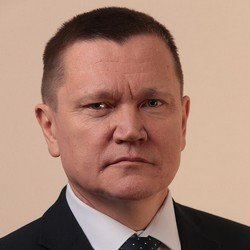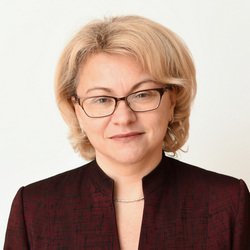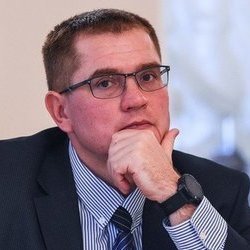'Life has become fast, but educational institutions live with the Soviet stereotype'
The order of the ministry is a fiction for enterprises
The chairman of the Committee on Housing Policy and Infrastructure Development of the State Council of the Republic of Tatarstan, Alexander Tygin, called the topic of training personnel for enterprises very acute with its 'innocent' sound. It is the topic with which the visiting meeting of the committee began in the new conference hall of the Kazan State Power Engineering University.
Two lines occupy 70% of the volume of the charge on receipts for utilities: electricity and heat, and in these areas, professionals with relevant knowledge and skills are always in demand, the first rector of the Kazan State Power Engineering University, Alexander Leontiev, cited a relation between training for housing and utilities and the university. But, according to him, newly-qualified employees not always have such qualification, knowledge and skills.
'Enterprise managers ask: 'Teach them to do something, not just the theory of the bachelor's degree.' The know-how has been done at the university — we give working professions. Some criticise us for this. But we have created workshops and issue qualifications at the level of the first and second categories,' said the first vice-rector of the university.
Last August, the order of the ministry of education and science of the Republic of Tatarstan on practical training of students was issued, Leontiev recalled. There are requirements for the university and for enterprises in terms of conditions and equipment. Under this order, the head of the training practice at the enterprise must be equated with a teaching employee, and for this, they need a medical certificate, as well as a certificate of no criminal record.

Then the first vice-rector of the university focused on targeted admission and targeted education, noting that these are completely different things.
According to him, targeted training is a good practice, when the employer selects students in the second or third year and concludes contracts with them, supports them with a scholarship, accepts them to practice training, helps with the topic of the diploma, and then — with employment.
'Target admission is not regulated by law. When it is a targeted admission, the applicant brings a contract with the company, and we are obliged to accept it in a separate competition, with low scores, outright C students. His employer didn't see who signed the contract with him. Where the applicant then intends to work, he himself does not know. Targeted admission is harmful for everyone, except for the graduate — C student... As a result, the company does not fulfill its obligations, the student learn halfheartedly. According to the law, we cannot expel him — we are not parties to this agreement,' the speaker reasoned.
He proposed to cancel the target admission for some areas, especially for undergraduate courses. 'Let them all compete on a common basis, and then we must choose from the enrolled ones — the meaning of our proposal,' Leontiev added.
He noted that now the target admission quota is 10%. But when the university sees a certificate of a D student, the university management convinces the company not to sign a contract on targeted admission with such an applicant, from which a good specialist will not turn out. For targeted training, companies select 46 people annually — this is a small amount, but there is serious work, enterprises pay for training, scholarships for students, monitor their progress, the first vice-rector explained.
In conclusion, he suggested that enterprises should make greater use of the capabilities of the Qualification Assessment Centre, which was established on the basis of the university, where 17 certified experts take exams.
'Listen to the voice of our leaders'
In addition to higher education, the training of personnel in secondary professional institutions of Tatarstan, where about 74 thousand students study, also requires attention. Popular specialisations in the fields of machine building, agriculture, construction, land transport, oil industry and petrochemical industry, were listed by the head of vocational education department at the ministry of education and science, Anna Sidorenko.
Personnel for housing and communal services are trained in 43 colleges, where 14,500 students are trained in 33 specialties of the industry. Besides, resource centres have been established at these educational institutions. Students work out their practical skills in construction, housing and utilities and road construction in 27 resource centres (65% of the total number of centres in the republic), where more than 11,000 students are engaged — 80% of those who are preparing to work in these industries. Over the 7 years of implementation of the republican programme, Tatarstan invested 5,8 billion rubles in the creation of resource centres, including 3,3 billion rubles for construction and transport.
Inquiries and training of personnel are conducted according to the required competencies, Anna Sidorenko noted. At the same time, she gave facts on several specialties, when the need is, for example, 16 people, the republic graduate 511, and professional institutions still notice that this number of specialists is not enough.

As a remark, Alexander Leontiev noted that earlier 26-29% of school graduates entered universities, but now — 70%.
In response to the speech of Anna Sidorenko, SMU-88 CEO and Deputy of the State Council of Tatarstan Ilya Wolfson noticed that graduates do not go to work to enterprises by specialty, he doesn't understand how employment takes place and believes that it is necessary to change the approach to this process.
Sidorenko explained that in certain cases it is necessary to work directly with enterprises, to clearly find out what specialists they need, what practice and what course students will come to them.
'There is no such agency in the country where educational organisations and enterprises can come and say who they need. Education is open for this,' the head of the department added.
'Everyone's open,' Wolfson continued.

According to him, today the republic shows that the base of the education system is great, but the enterprises do not share this enthusiasm. And at the level of secondary schools, they have not yet approached the training of specialists in terms of security.
'It is ok when the employer and the educational institution are looking for a way to each other as short as possible. The child graduates from school, get a sought-after profession with a good salary, and the economy gets competent work. We want our resource centres for municipal sphere gave the best professionals,' said the chairman of the Tatarstan State Council Committee.
However, according to him, modern conditions do not suggest any common platforms for educational institutions and companies. 'Professional training is also a business. No one gives volumes to our builders on a silver platter, and the educational sphere should also come to the market component of competitiveness,' Tygin noted.
Besides, Anna Sidorenko suggested thinking about how to attract companies to short-term retraining programmes, since the republic's colleges have 48 such educational programmes. The same Kazan Construction College can offer not six programmes, as last year, and train not 62 people, but much more.
KRT gives more freedom to residents, faster than the General Plan, but not higher than it
After the training of specialists, the deputies briefly discussed the amendments to the urban planning law of the republic in accordance with the federal innovations (No. 494-FZ).
'In the near future, this is the most important law that will determine the development of the republic's cities in the coming years,' the head of the parliamentary committee stressed.
He explained that a total of 22 federal amendments appeared. Of these, nine must be accepted. According to Alexander Tygin, the State Council of the Republic of Tatarstan plans to fulfill the federal requirements for nine amendments in the first reading. At the same time, the subjects are given the right to form 13 more norms, taking into account their specifics. These helping and stimulating amendments are planned to be adopted in the first and second quarters of this year, after listening to experts, representatives of companies, ordinary residents of Tatarstan, the deputy added.
The legislators propose to set a deadline for holding general meetings of the owners of apartment buildings, which are not recognised as dilapidated and are subject to demolition or reconstruction and are included in the draft decision on the integrated development of the territory (KRT). Besides, it is supposed to exempt from paying contributions for major repairs of homeowners whose houses are located in the zones of the KRT. At the same time, the KRT will not have an advantage over the Land use and development rules or the General Plan, but it will become faster, documents for integrated development can be prepared and approved, and only then changes will be made to the General Plan, Alexander Tygin explained.
The legislator introduced the term when repairs are economically impractical. Residents living in a house that does not have the status of a dilapidated one are given the right to decide the fate of the residential building, the parliamentarian added. In his opinion, these amendments will make it possible to develop new non-residential areas, such as the river port, build social facilities, schools and kindergartens there, and create functional zones for businesses.